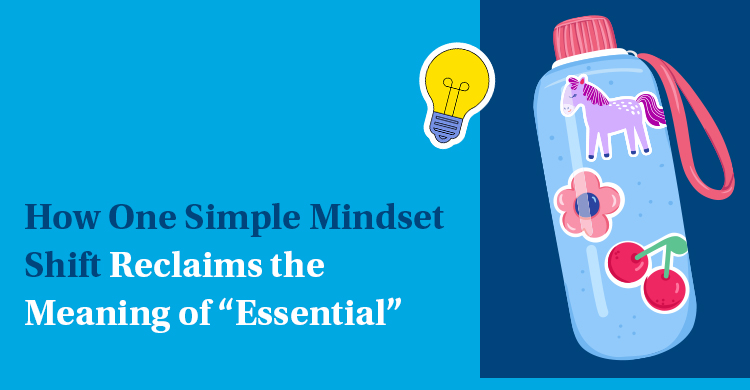This post is part of a series on In Praise of American Educators (And How They Can Become Even Better).
After reading an advance copy of Dr. Rick Dufour’s In Praise of American Educators (And How They Can Become Even Better), I now feel exactly like I do after reading any of his books: empowered and challenged. Just look at the title: it praises me as a teacher yet also suggests I can do more. That’s my PLC experience over the last 11 years in a nutshell.
The praise by Dr. DuFour, however, is much needed for a nation of overworked and underappreciated professionals. We American teachers have been much-maligned by media since A Nation At Risk emerged in the early 1980’s, and our post-NCLB identity as ineffective hacks has not been easy to swallow, either. DuFour challenges these negative stereotypes of educators and instead elevates us by looking at national and international achievement data in new ways, celebrating our remarkable successes with our students while skewering and holding accountable the system designed to denigrate educators “because there is so much political hay to be made from saying that American schools and students stink” (Bracey 2005).
DuFour also cites work by Dolton and Marcenaro (2013) that characterizes the challenge I faced in my 14 years of experience as a teacher, department chair, educational consultant, and mentor of new teachers in American public schools:
If teachers aren’t respected in society, children won’t listen to them in class, parents won’t reinforce the messages that are coming from school and the most talented graduates will continue to disregard teaching as a profession. Over time, this declining respect for teachers will weaken teaching, weaken learning, damage the learning opportunities for millions and ultimately weaken societies around the world.
One experience in particular comes to mind regarding the above quote: as I was watching a new teacher in action in a non-PLC school, I watched high school sophomores openly disregard her lesson, even standing up to walk outside to take cell phone calls. When I stepped out of my observer role and confronted one of the students about his penchant for pulling his pants down in class, his friend suggested that I was asking for it if I continued to challenge them.
Though this is obviously an outlier of an example, it is important to understand that American public school educators face these kinds of situations (by degrees) in our classrooms each and every day, and the constantly-turning media wheel encourages our society to not focus this source of conflict but rather on the teachers who have dedicated ourselves to helping our students learn something different and more lasting than the media’s ideas about what’s cool, hip, or even effective.
And so DuFour’s praise is much needed; would that there were more of it in popular culture. At least one of our most respected voices is claiming what is true and real regarding our profession and the outstanding work that happens across the United States every single day.
Typically, however, DuFour does not simply congratulate us in In Praise of American Educators; there’s a parenthetical suggestion in the title which suggests we can continue to improve. This kind of “tough love” is what I’ve experienced on several occasions over the years as I listened to Dr. DuFour at conferences and in small-group settings. His is a particularly dry yet erudite and experienced delivery; nobody would ever accuse Rick DuFour of being a Vegas-style entertainer. The tone of his latest book is fundamentally this one: I can hear DuFour’s voice behind the words. Transitioning from praising us for our work, he writes:
In the end, creating a learning-focused culture requires an organization to answer this question: Are we here to ensure students are taught, or are we here to ensure that our students learn?
Subtly but surely, DuFour reminds us that while we are outstanding educators, we must also examine what our motives for our practices actually are: are they created to make us comfortable as teachers, or are they designed to help our students—all students—learn? This fundamental question is one that schools all over the United States and around the world must answer. It’s not a question we must answer only once; it is a question we must revisit every year, every month, and—in my own case, as I consider my team’s PLC work, or as I look at a struggling student and feel like ignoring him because he’s ruining my lesson plan by not learning—even every day or every class period. It’s a mantra of sorts: am I about students learning, or am I about my own teaching? DuFour is clear on this point, and this change is not simply semantic. It is tectonic.
As I continued reading In Praise of American Educators, I also appreciated DuFour’s constant iconoclasm regarding things, ideas, or even people which do not contribute to student learning. Again, I hear his voice in the words, especially in chapters which have become DuFour’s hallmarks: how to address resistance towards collaborative cultures, and how to lead a school towards more meaningful work—both of which are topics of presentation sessions I have heard from Dr. DuFour. Rarely if ever does the author seem coercive; rather, his extensive research of seemingly all major educational theorists support his ideas about staff development and student learning. While reading, I was once again convinced of the efficacy of PLCs as DuFour argued for the struggling student to have the same opportunities as the star student. He writes, “Why can’t [a school’s master schedule] allow for a student who needs intensive reading help, but loves art, to participate in both [just as the star student is allowed to participate in AP and, say, music]?” It is exactly for these reasons that I became a teacher, and I would guess that nearly all of the teachers I have worked with in the last 20 years would agree: we are not in this business to keep students down; we are in this business to lift students up. In Praise of American Educators explains as well as any book on education I have ever read just how to accomplish this minor miracle.
And ultimately that is the message of In Praise of American Educators: continue performing the every-day miracle of lifting all students up by working together as a community. DuFour writes:
Those who take this path less chosen will embrace and articulate the moral imperative of ensuring high levels of learning for all students and will acknowledge that creating the conditions for addressing that imperative lies within their sphere of influence.
I like this quote not just for the administrators it was intended, however, and I think Dr. DuFour would agree with me. I like it for teachers as well. In fact, he argues for just that—we teachers must realize that the imperative for helping all students learn at high levels lies within our sphere of influence if we work collaboratively.
In Praise of American Educators (And How They Can Become Even Better) should be required reading for any educator curious about the why of PLC work. Because it is framed within a defense of educators against an unrelenting, unsympathetic media assault designed to keep the status quo as well as convey heavily-monied political agendas, we teachers are given reasons for pause and reflection as we carry on our most noble kind of work.
After finishing the book, I experienced a pretty familiar feeling: We are fortunate to have Rick DuFour in our corner.
[author_bio id=”188″]






